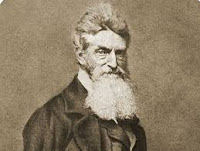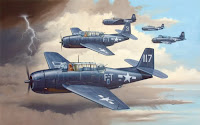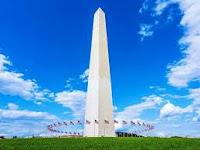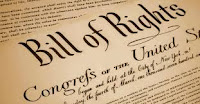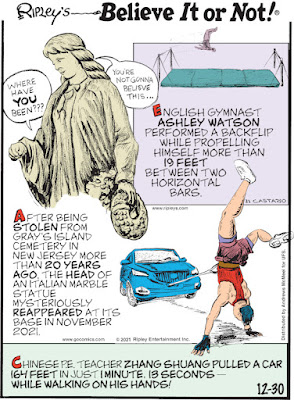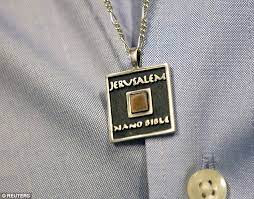December 31, 2021
On December 1, 1955, in Montgomery, Alabama, Rosa Parks was jailed for refusing to give up her seat on a public bus to a white man. According to a Montgomery city ordinance in 1955, African Americans were required to sit at the back of public buses and were also obligated to give up those seats to white riders if the front of the bus filled up. Parks was in the first row of the Black section when the white driver demanded that she give up her seat to a white man.Martin Luther King, Jr. organized a successful Montgomery Bus Boycott. On November 13, 1956, the U.S. Supreme Court struck down Alabama state and Montgomery city bus segregation laws. On December 20, King announced, “The year old protest against city buses is officially called off, and the Negro citizens of Montgomery are urged to return to the buses tomorrow morning on a non-segregated basis.” The boycott ended the next day. Rosa Parks was among the first to ride the newly desegregated buses.
Abolitionist John Brown was executed on charges of treason, murder and insurrection on December 2, 1859. Brown planned to seize the Federal arsenal at Harper’s Ferry and retreat to the Appalachian Mountains of Maryland and Virginia, where they would establish an abolitionist republic of liberated slaves and abolitionist whites. He was initially successful, but U.S. Marines commanded by Colonel Robert E. Lee and Lieutenant J.E.B. Stuart, recaptured the arsenal, taking John Brown and several other raiders alive. On the day of his execution, 16 months before the outbreak of the Civil War, John Brown prophetically wrote, “The crimes of this guilty land will never be purged away but with blood.”On December 3, 1967, 53-year-old Louis Washkansky received the first human heart transplant. Surgeon Christiaan Barnard performed the revolutionary medical operation. After Washkansky’s surgery, he was given drugs to suppress his immune system and keep his body from rejecting the heart. These drugs also left him susceptible to sickness, however, and 18 days later he died from double pneumonia. Despite the setback, Washkansky’s new heart had functioned normally until his death.At 2:10 p.m., on December 5, 1945, five U.S. Navy Avenger torpedo-bombers comprising Flight 19 took off from the Ft. Lauderdale Naval Air Station in Florida on a routine three-hour training mission. Flight 19 was scheduled to take them due east for 120 miles, north for 73 miles, and then back over a final 120-mile leg that would return them to the naval base. They never returned, and the Legend of the Bermuda Triangle was born.On December 6, 1884, in Washington, D.C., workers place a nine-inch aluminum pyramid atop a tower of white marble, completing the construction of a monument to the city’s namesake and the nation’s first president, George Washington (The first monument to our first president is a rugged stone tower that was erected by the citizens of Boonsboro, Maryland, in 1827). In September, 2020, a Washington, DC committee formed by the mayor recommended calling for the federal government to “remove, relocate or contextualize” a group of federal memorials and monuments, including the Washington Monument.At 7:55 a.m. Hawaii time, on December 7, 1941, the Japanese military attacked the U.S. naval base at Pearl Harbor. Five of eight battleships, three destroyers, and seven other ships were sunk or severely damaged, and more than 200 aircraft were destroyed. 2,400 Americans were killed and 1,200 were wounded. The day after Pearl Harbor was bombed, President Roosevelt appeared before a joint session of Congress and declared, “Yesterday, December 7, 1941– a date which will live in infamy – the United States of America was suddenly and deliberately attacked by naval and air forces of the Empire of Japan.” Congress declared war by a vote of 82-0 in the Senate and 388-1 in the House. Jeannette Rankin, a pacifist and the first woman elected to Congress, cast the only vote against the declaration.John Lennon was shot and killed by an obsessed fan in New York City on December 8, 1980. The 40-year-old former Beatle was entering his luxury Manhattan apartment building when Mark David Chapman shot him four times at close range with a .38-caliber revolver. Lennon was rushed to the hospital but died en route. Chapman had received an autograph from Lennon earlier in the day and voluntarily remained at the scene of the shooting until he was arrested by police.On December 9, 1934, the New York Giants won the NFL championship by beating the Chicago Bears, 30-13, in the famous “Sneakers Game.” With the temperature at 9 degrees and the Polo Grounds field a sheet of ice, the Giants were behind 13-3. “The field was not only frozen but it was corroded,” Giants future Hall of Famer Mel Hein said. “Our cleats would not hold.” Sneakers were supplied by Manhattan College and in the fourth quarter the Giants scored 27 points to win the championship.After ruling for less than one year, Edward VIII became the first English monarch to voluntarily abdicate the throne. He chose to abdicate after the British government, public, and the Church of England condemned his decision to marry the American divorcée Wallis Warfield Simpson. On the evening of December 11, 1936, he gave a radio address in which he explained, “I have found it impossible to carry on the heavy burden of responsibility and to discharge the duties of king, as I would wish to do, without the help and support of the woman I love.” On December 12, his younger brother, the duke of York, was proclaimed King George VI.On December 12, 1980, American oil tycoon Armand Hammer paid $5,126,000 at auction for a notebook, known as the Leicester Codex, containing writings by the legendary artist Leonardo da Vinci. The manuscript, written around 1508, was one of some 30 similar books da Vinci produced during his lifetime on a variety of subjects. It contained 72 loose pages featuring some 300 notes and detailed drawings, all relating to the common theme of water and how it moved. Experts have said that da Vinci drew on it to paint the background of his masterwork, the Mona Lisa. On November 11, 1994, the Codex was sold to Bill Gates at auction for a new record high price of $30.8 million. On December 14, 1863, President Abraham Lincoln announced a grant of amnesty for Emilie Todd Helm, his wife Mary Lincoln’s half sister and the widow of a Confederate general. The pardon was one of the first under Lincoln’s Proclamation of Amnesty and Reconstruction. After her husband Benjamin Helm was killed at the Battle of Chickamauga, Helm made her way through Union lines to Washington, D.C. She stayed in the White House and the Lincolns tried to keep her visit a secret. General Daniel Sickles, who had been wounded at the Battle of Gettysburg, Pennsylvania, five months prior, told Lincoln that he should not have a Rebel in his house. Lincoln replied, “General Sickles, my wife and I are in the habit of choosing our own guests. We do not need from our friends either advice or assistance in the matter.”Following ratification by the state of Virginia, on December 15, 1791, the first 10 amendments to the U.S. Constitution, known collectively as the Bill of Rights, became the law of the land. The amendments were designed to protect the basic rights of U.S. citizens, guaranteeing the freedom of speech, press, assembly, and exercise of religion; the right to fair legal procedure and to bear arms; and that powers not delegated to the federal government would be reserved for the states and the people.In Boston Harbor, a group of Massachusetts colonists disguised as Mohawk Indians boarded three British tea ships and dumped 342 chests of tea into the harbor. The midnight raid, on December 16, 1773, popularly known as the “Boston Tea Party,” was in protest of the British Parliament’s Tea Act, a bill designed to save the faltering East India Company by greatly lowering its tea tax and granting it a virtual monopoly on the American tea trade. When three tea ships, the Dartmouth, the Eleanor, and the Beaver, arrived in Boston Harbor, the colonists demanded that the tea be returned to England. After Massachusetts Governor Thomas Hutchinson refused, Patriot leader Samuel Adams organized the “tea party” with about 60 members of the Sons of Liberty, his underground resistance group. The British tea dumped in Boston Harbor was valued at some $18,000 ($300,000 today).Near Kitty Hawk, North Carolina, Orville and Wilbur Wright made the first successful flight in history of a self-propelled, heavier-than-air aircraft. Orville piloted the gasoline-powered, propeller-driven biplane, which stayed aloft for 12 seconds and covered 120 feet on its inaugural flight on December 17, 1903.The Apollo lunar-landing program ended on December 19, 1972, when the last three astronauts to travel to the moon splash down safely in the Pacific Ocean. From 1969 to 1972, there were six successful lunar landing missions, and one aborted mission, Apollo 13. During the Apollo 17 mission, astronauts Eugene A. Cernan and Harrison H. Schmitt descended to the moon’s surface in the lunar module Challenger, and stayed for a record 75 hours on the surface of the moon (Ronald Evans remained in command module America), conducting three separate surface excursions in the Lunar Rover vehicle and collecting 243 pounds of rock and soil samples.On December 20, 1957, while spending the Christmas holidays at Graceland, his newly purchased Tennessee mansion, rock-and-roll star Elvis Presley received his draft notice for the United States Army. With a hit movie, Love Me Tender, and a string of gold records including “Heartbreak Hotel,” “Blue Suede Shoes,” “Hound Dog,” and “Don't Be Cruel,” Presley had become a national icon, and the world’s first bona fide rock-and-roll star. As the Beatles’ John Lennon once famously remarked: “Before Elvis, there was nothing.” The following year, at the peak of his career, Presley received his draft notice for a two-year stint in the army. Fans sent tens of thousands of letters to the army asking for him to be spared, but Elvis would have none of it. He served in Company D, 32nd Tank Battalion, 3rd Armor Division in Friedberg, Germany, where he attained the rank of sergeant. Presley’s manager, Colonel Tom Parker, continued to release singles recorded before his departure, keeping the money rolling in and his most famous client fresh in the public’s mind. Apollo 8, the first manned mission to the moon, was successfully launched from Cape Canaveral, Florida, on December 21, 1968, with astronauts Frank Borman, James Lovell, Jr. and William Anders aboard. On Christmas Eve, the astronauts entered into orbit around the moon, the first manned spacecraft ever to do so. During one of those orbits they took a spectacular picture of Earth and as recorded in this video, read from Genesis Chapter 1. On Christmas morning, Apollo 8 left its lunar orbit and began its journey back to Earth, landing safely in the Pacific Ocean on December 27. On December 22, 1808, Beethoven's Fifth Symphony premiered in Vienna. Initial reviews were not favorable, but the concert venue was freezing cold; it was more than two hours into a mammoth four-hour program before the piece began; and the orchestra played poorly enough that day to force the nearly deaf composer – also acting as conductor and pianist – to stop the ensemble partway into one passage and start again from the very beginning. It was, all in all, a very inauspicious beginning for what would soon become the world’s most recognizable piece of classical music: Ludwig van Beethoven’s Symphony No. 5 in C Minor, Op. 67.Just after midnight on Christmas morning, 1914, the majority of German troops engaged in World War I ceased firing their guns and artillery and began singing Christmas carols. At the first light of dawn, many of the German soldiers emerged from their trenches and approached the Allied lines across no-man’s-land, calling out “Merry Christmas” in their enemies’ native tongues. At first, the Allied soldiers feared it was a trick, but seeing the Germans unarmed they climbed out of their trenches and shook hands with the enemy soldiers. The men exchanged presents of cigarettes and plum puddings and sang carols and songs. On December 28, 1981, the first American “test-tube baby,” a child born as a result of in-vitro fertilization, was born in Norfolk, Virginia. Considered a miracle at the time, births like that of Elizabeth Jordan Carr are now common. IVF was not without its critics. Many in the medical community were cautious about “playing God.” IVF drew condemnation from some in the religious community. It is estimated that IVF now accounts for over one percent of American births every year.In post-revolutionary Russia, the Union of Soviet Socialist Republics (USSR) was established on December 30, 1922. In the decades after it was established, the Russian-dominated Soviet Union grew into one of the world’s most powerful and influential states and eventually encompassed 15 republics. On December 31, 1991, sixty-nine years and one day after it was created, the Soviet Union was dissolved following the collapse of its communist government.On December 31, 1972, Baseball star Roberto Clemente died in plane crash when the cargo plane in which he was traveling crashed off the coast of Puerto Rico. Clemente was on his way to deliver relief supplies to Nicaragua following a devastating earthquake there a week earlier. He was a hero in his native Puerto Rico, where he spent much of the off-season doing charity work. Clemente was particularly distressed when he learned that very little aid was getting to victims of a devastating December 23 earthquake near Managua.Clemente decided to collect supplies on his own and personally deliver them. The plan went awry when Clemente chose for the mission a plane owned by Arthur Rivera. The plane was mechanically unsound and overloaded when it took off at 9 p.m. The sounds of engine failure were heard as it went down the runway. It reached an altitude of only 200 feet before exploding and plunging into the ocean. Rescue workers were sent out immediately, but the task was next to impossible in the darkness. The bodies were never found.
👉 Today’s close is from Crosswalk.com.
In September 1939, Great Britain allied with France in declaring war on Nazi Germany. By the end of the year, anxieties throughout England remained on high alert; everyone was fearful of bombing and invasion. When King George VI sat down before two large microphones to make his Christmas Day speech to the nation, his goal was to reassure the people that their nation was prepared and able and their cause right and just.
“A new year is at hand,” the king said. “We cannot tell what it will bring. If it brings peace, how thankful we shall all be. If it brings us continued struggle, we shall remain undaunted.”
Then, turning to some lines of poetry his wife had recently shared with him, he concluded his speech with these words, which are a fitting close to our year together. They offer a word of encouragement that – we hope – will settle your hearts amid the troubles of our own era in history. These lines are from “The Gate of the Year,” a poem written in 1908 by Minnie Louise Haskins:
I said to the man who stood at the gate of the year “Give me a light that I may tread safely into the unknown.”
And he replied, “Go into the darkness and put your hand into the hand of God. That shall be to you better than light and safer than a known way!”
Amen!
-30-

